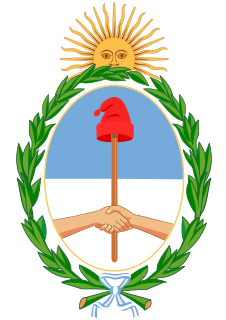
Naturalization is the legal act or process by which a non-citizen of a country may acquire citizenship or nationality of that country. It may be done automatically by a statute, i.e., without any effort on the part of the individual, or it may involve an application or a motion and approval by legal authorities. The rules of naturalization vary from country to country but typically include a promise to obey and uphold that country's laws and taking and subscribing to an oath of allegiance, and may specify other requirements such as a minimum legal residency and adequate knowledge of the national dominant language or culture. To counter multiple citizenship, some countries require that applicants for naturalization renounce any other citizenship that they currently hold, but whether this renunciation actually causes loss of original citizenship, as seen by the host country and by the original country, will depend on the laws of the countries involved.

Canadian nationality law details the conditions in which a person is a national of Canada. With few exceptions, almost all individuals born in the country are automatically citizens at birth. Foreign nationals may naturalize after living in Canada for at least three years while holding permanent residence and showing proficiency in the English or French language. As Commonwealth citizens, Canadian citizens have favoured status when residing in the United Kingdom; those living in the U.K. are eligible to vote and serve in public office or non-reserved government positions.
"Anchor baby" is a term used to refer to a child born to a non-citizen mother in a country that has birthright citizenship which will therefore help the mother and other family members gain legal residency. In the U.S., the term is generally used as a derogatory reference to the supposed role of the child, who automatically qualifies as an American citizen under jus soli and the rights guaranteed in the Fourteenth Amendment to the U.S. Constitution. The term is also often used in the context of the debate over illegal immigration to the United States. A similar term, "passport baby", has been used in Canada for children born through so-called "maternity" or "birth tourism".

United States nationality law details the conditions in which a person holds United States nationality. In the United States, nationality is typically obtained through provisions in the U.S. Constitution, various laws, and international agreements. Citizenship is a right, not a privilege. While the domestic documents often use citizenship and nationality interchangeably, nationality refers to the legal means in which a person obtains a national identity and formal membership in a nation and citizenship refers to the relationship held by nationals who are also citizens.
Status as a natural-born citizen of the United States is one of the eligibility requirements established in the United States Constitution for holding the office of president or vice president. This requirement was intended to protect the nation from foreign influence.

Birth tourism is the practice of traveling to another country for the purpose of giving birth in that country. The main reason for birth tourism is to obtain citizenship for the child in a country with birthright citizenship. Such a child is sometimes called an "anchor baby" if their citizenship is intended to help their parents obtain permanent residency in the country. Other reasons for birth tourism include access to public schooling, healthcare, sponsorship for the parents in the future, or even circumvention of China's two-child policy. Popular destinations include the United States and Canada. Another target for birth tourism is Hong Kong, where some mainland Chinese citizens travel to give birth to gain right of abode for their children.
Birthright citizenship in the United States is United States citizenship acquired by a person automatically, by operation of law. This takes place in two situations: by virtue of the person's birth within United States territory or because one or both of their parents is a US citizen. Birthright citizenship contrasts with citizenship acquired in other ways, for example by naturalization.

Lost Canadians are individuals who have believed themselves to be Canadian citizens or to be entitled to citizenship, but who are not/were not officially considered citizens due to particular and often obscure aspects or interpretations of Canadian nationality law. Although these individuals had strong, undeniable connections to Canada, they were either never actually Canadian citizens throughout their entire life, or else had Canadian citizenship and lost it unknowingly through certain provisions of the Citizenship Act.

Argentine nationality law regulates the manner in which one acquires, or is eligible to acquire, Argentine nationality. Nationality, as used in international law, describes the legal methods by which a person obtains a national identity and formal membership in a nation. Citizenship refers to the relationship between a nation and a national, after membership has been attained. Argentina recognizes a dual system accepting Jus soli and Jus sanguinis for the acquisition of nationality by birth and allows foreign persons to naturalize.

Citizenship of the United States is a legal status that entails Americans with specific rights, duties, protections, and benefits in the United States. It serves as a foundation of fundamental rights derived from and protected by the Constitution and laws of the United States, such as freedom of expression, due process, the rights to vote, live and work in the United States, and to receive federal assistance. The implementation of citizenship requires attitudes including pledging allegiance to the United States and swearing an oath to support and defend the constitution thereof.

Colombian nationality is typically obtained by birth in Colombia when one of the parents is either a Colombian national or a Colombian legal resident, by birth abroad when at least one parent was born in Colombia, or by naturalization, as defined by Article 96 of the Constitution of Colombia and the Law 43-1993 as modified by Legislative Act 1 of 2002. Colombian law differentiates between nationality and citizenship. Nationality is the attribute of the person in international law that describes their relationship to the State, whereas citizenship is given to those nationals that have certain rights and responsibilities to the State. Article 98 of the Colombian constitution establishes that Colombian citizens are those nationals that are 18 years of age or older. Colombian citizens are entitled to vote in elections and exercise the public actions provided in the constitution.

Diane Guerrero is an American actress. She is known for her roles as inmate Maritza Ramos on the Netflix series Orange Is the New Black and Lina on Jane the Virgin. Guerrero grew up in Boston and remained there after the rest of her family was deported to Colombia. She is an advocate for immigration reform. Her role on Orange Is the New Black has contributed to three consecutive wins for the Screen Actors Guild Award for Outstanding Performance by an Ensemble in a Comedy Series. Guerrero is the author of In the Country We Love: My Family Divided, a memoir about her parents being detained and deported when she was fourteen. She currently stars as Jane in the HBO Max action-drama series Doom Patrol. She also voiced the character Isabela Madrigal in the 2021 Disney movie Encanto.
Rasmea Yousef Odeh in Arabic رسمية يوسف عودة is a Palestinian Jordanian and former American citizen who was a member of the Popular Front for the Liberation of Palestine convicted by Israeli military courts for her role in the murder of two students, Leon Kanner and Eddie Joffe in the 1969 Jerusalem supermarket bombing. After her release in a prisoner exchange, she immigrated to the United States, became a U.S. citizen illegally, and served as associate director at the Arab American Action Network in Chicago, Illinois.

Immigration policy, including illegal immigration to the United States, was a signature issue of former U.S. president Donald Trump's presidential campaign, and his proposed reforms and remarks about this issue generated much publicity. Trump has repeatedly said that illegal immigrants are criminals. Despite Trump never explicitly mentioning correlation, critics have argued that there is an increasing amount of evidence that immigration does not correlate with higher crime rates. Entering the US illegally is a federal crime, making the person who does that a criminal(8 U.S. Code § 1325).
Deportations of Korean adoptees from the United States are an uncommon phenomenon, but have been cause for controversy over many years. Due to the institutional and parental failure to grant and apply for adopted children's citizenship, South Koreans adopted by American families prior to 1983 were left vulnerable to deportations, and many suffered from a lack of access to other resources American citizens have.
Federal policy oversees and regulates immigration to the United States and citizenship of the United States. The United States Congress has authority over immigration policy in the United States, and it delegates enforcement to the Department of Homeland Security. Historically, the United States went through a period of loose immigration policy in the early-19th century followed by a period of strict immigration policy in the late-19th and early-20th centuries. Policy areas related to the immigration process include visa policy, asylum policy, and naturalization policy. Policy areas related to illegal immigration include deferral policy and removal policy.

Nora Krug is a German–American author and illustrator. Her graphic novel Belonging: A German Reckons With History and Home won the 2018 National Book Critics Circle Award in Autobiography, 2019 Schubart-Literaturpreis, and 2019 Evangelischer Buchpreis. She is also an Associate professor of Illustration at the Parsons School of Design in New York City.
Dominican Republic nationality law is regulated by the 2015 Constitution, Law 1683 of 1948, the 2014 Naturalization Law #169-14, and relevant treaties to which the Dominican Republic is a signatory. These laws determine who is, or is eligible to be, a citizen of the Dominican Republic. The legal means to acquire nationality and formal membership in a nation differ from the relationship of rights and obligations between a national and the nation, known as citizenship. Nationality in the Dominican Republic is typically obtained either on the principle of jus soli, i.e. by birth in the Dominican Republic; or under the rules of jus sanguinis, i.e. by birth abroad to a parent with Dominican nationality. It can also be granted to a permanent resident who has lived in the country for a given period of time through naturalization or for a foreigner who has provided exceptional service to the nation.
Panamanian nationality law is regulated by the 1972 Constitution, as amended by legislative acts; the Civil Code; migration statues, such as Law Decree No. 3 of 2008; and relevant treaties to which Panama is a signatory. These laws determine who is, or is eligible to be, a citizen of Panama. The legal means to acquire nationality and formal membership in a nation differ from the relationship of rights and obligations between a national and the nation, known as citizenship. Panamanian nationality is typically obtained either on the principle of jus soli, i.e. by birth in Panama; or under the rules of jus sanguinis, i.e. by birth abroad to a parent with Panamanian nationality. It can also be granted to a permanent resident who has lived in the country for a given period of time through naturalization.

Isabela Madrigal is a fictional character who appears in Walt Disney Animation Studios' 60th feature, Encanto (2021). Isabela is depicted as seemingly perfect but entitled, possessing the ability to make flowers grow. However, Mirabel—her youngest sister—discovers that she struggles under the expectations of perfection. With Mirabel's help, she realizes her imperfections and begins growing plants other than flowers.











